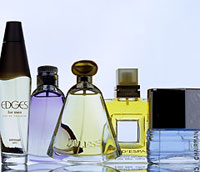Perfume giants may quit business in Russia due to new law on alcohol
Russian stores selling perfumes and cosmetics may run out of stock in August, and the consumer will have to pay a higher price for the few items still available on the market, according to Russian manufactures and dealers in perfume and cosmetic goods. As of July 1, 2007, information on purchase, storage and sale of any product containing more than 1.5% of alcohol is to be stored in the uniform electronic information management system. The system was designed for regulating the wine and spirits market in Russia. Now the government is going to use it for keeping track of all colognes, deodorants and cosmetics produced or sold on the domestic market. In other words, all producers of perfume and cosmetic goods will have to purchase, install and maintain special equipment to comply with the regulation. It is clear that companies will incur additional expenses while purchasing and operating new equipment. As a result, the retail price of the goods will increase.

Many manufacturers simply cannot afford such costly equipment. “Expenses relating to the purchase and maintenance of the new system equipment will total 2 million rubles during the first year,” said Tatyana Puchkova, chairwoman of the Russian Perfume and Cosmetic Association. To cut down on expenses, Svoboda factory has already stopped producing goods that contain alcohol. The factory’s product range has shrunk too. Allocating huge funds on the new system may result in the closure of small-sized companies. Incidentally, the majority of companies manufacturing perfumes and cosmetics in Russia fall under the category of small business.
Besides, the sale of imported perfume and cosmetic goods containing additives which are not certified by Russian authorities will be deemed illegal in Russia next month. The lawmakers apparently believe that the new regulation will help to stop the import of unlawful alcohol disguised as perfumery. On the other hand, the restrictive measures may have a devastating effect on the Russian market. “Manufacturers of elite perfume brands like Chanel or Dior will not change the formula of their products to tailor for the Russian market. They may as well leave the Russian market,” said Sergei Bolshakov, executive director of the National Association of Perfume, Cosmetic and Household Chemicals Manufacturers.
If worst comes to worst, there will be a considerable decrease in the number of players on the Russian market of perfume and cosmetic goods. According to estimates, the first shortages of both Russian-made and imported perfumes may be felt as early as August. The retail price of products still on sale will go up by about 10%. Likewise, the price of the most expensive items e.g. elite perfumes and cosmetics will rise by 5%. The cheapest items may cost twice as much.
Arguments and Facts
Translated by Guerman Grachev
Pravda.ru
Subscribe to Pravda.Ru Telegram channel, Facebook, RSS!


